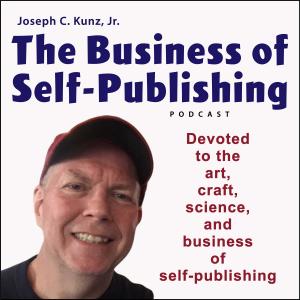The Business of Self-Publishing

Personalize Your Foreword with Anecdotes to Make It More Powerful
Synopsis
Anecdotes are an amazing literary device for writers, as well as marketers. They are a deceptively powerful writing and marketing tool. Here is a short discussion about anecdotes, and how to use them in a book’s foreword to help make an emotional connection with the reader, and sell more books.
What You Will Learn In This Post
1. You will learn what an anecdote is about, and how it can help you sell more books.
2. You will learn how to use anecdotes and how they can turn your book’s foreword into a powerful marketing tool.
3. You will learn why I continually emphasize the fact that each part of your book, including the foreword, if planned out properly, can help you sell more books and get more clients.
Introduction
Anecdotes are an amazing literary device for writers, as well as marketers. They are a deceptively powerful writing and marketing tool. Using anecdotes in the foreword will immediately make your book stand out from the crowd. When written properly, they can be very engaging, and grab and hold onto the reader’s attention.
This is what the foreword is all about. Hooking the reader with an interesting story, and then reeling them in to make an emotional connection with the author of the foreword. Then hopefully the reader will want to continue reading the entire book.
A. What Is An Anecdote?
An anecdote is a very short and interesting personal story from a person's past experiences - that is used to illustrate a point. It can be an experience from the writer, or from someone they know or have heard about. The anecdote, or mini-story, immediately puts the reader directly into the middle of the action.
It usually describes one dramatic moment in time. It’s written as a way to show, or illustrate, a particular point (show, don't tell). It typically involves something that happened such as a business or personal problem, or challenge that had to be overcome, or mistake that had to get fixed, or misunderstanding, etc.
B. How To Use Anecdotes In A Foreword
Here is one paragraph from a book foreword that I wrote entirely as a personal essay. I utilize personal anecdotes to show how the book had an effect on me – how I relate the information in the book to my life. I reveal my real-life story to show the reader how I connect with the book.
I use my personal story to illustrate a larger point about the content of the book. My job as the foreword author is to show the reader that I made an emotional connection with the book, and thereby the hope is that the reader will make an emotional connection with me – and then develop the desire to read the entire book. Wallace Wattles wrote the book. You can read the entire foreword on my blog.
a. An Example Of An Anecdotal Story Used In A Foreword
“But now, looking back at my family life, I have since come to realize that my mother, with almost no formal education, no career skills, no money, and three small children to feed, inherently understood many of the basic concepts in this book. My mother was not as eloquent as Wattles, and she didn’t have much of an opportunity to put Wattles’ principles into practice."
"But me and my brothers were inadvertently living and learning Wattles’ concepts every day – through the actions of our mother. She taught us that even in the worst of times, that by sticking to our single-minded vision to grow and thrive, that we will survive; and acting every day with the purpose to achieve our goals, that our faith in each other and in our dream of creating a successful life will help us succeed; and our gratitude to God for keeping us healthy so that we could keep working and studying, we would eventually be successful. And eventually, we were.”
Conclusion
Anecdotes are one of the most powerful marketing tools available to the foreword author and the book marketer. Endorsements and testimonials from celebrities and other famous people are probably more powerful and can have a greater imp...






 Visit Podcast Website
Visit Podcast Website RSS Podcast Feed
RSS Podcast Feed Subscribe
Subscribe
 Add to MyCast
Add to MyCast